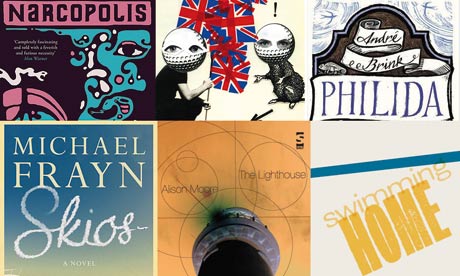
As the Booker longlist does the rounds, and 50 Shades of Grey and its grubby offspring take the place of Haribo at supermarket checkouts, there's never been a better time to have an opinion on books I haven't read. Bad books, good books, disappointments and classics – I could name a dozen in each of these categories that I've never got round to picking up, but about which I have formed a kind of aggregate opinion based on a complicated algorithm of prejudice and past reading.
I already know what I'm supposed to think about the Booker – not necessarily because there is a single, pervasive evaluation, but because I know what the kind of person who likes the kind of books that I like would think. Thus, I can contribute to a conversation in which the under-informed collaboration of secondhand opinion runs no risk of achieving honesty or of exposing anyone's ignorance, foolishness or secret heart.
Uninformed opinions are the easiest and most amusing to hold – they are not weighed down by uncertainty and their edges are firm, with no flicker of nuance or softening of affection. You would never say "It was terrible, but I kind of loved it" about a book you hadn't read, you would say it was cliched or brave or badly written – perhaps referring to the plot summaries you have come across, or a few painful paragraphs or pages that you had read in some other, heavily annotated, environment.
Recently, a couple of memoirs came out, both of which I read in extract, not in full. Both writers sounded annoying, and I enjoyed judging them based on what I had read, as well as on the reviews, comment pieces and articles that foamed in their wakes. However, I came to feel uneasy with the quality of the view from my high horse. In both cases, the extracts I had read clearly made up part of a broader and more complicated narrative.
Making judgments about these writers and their work based on a disjointed chunk of evidence seemed as narrow minded as condemning a work of fiction because I didn't like the characters in the first five chapters, and so didn't bother finishing it. I was like the 19th-century reviewers who condemned any novel where the moral failings of the heroine were not punished by death. I determined to make an effort in future to temper my indignation where I did not have the full facts, and to save my bile for the bad books that I have read to the bitter, ridiculous, or pointless end.
I somehow made it well into my 30s without reading Dickens. I had been put off by Sunday evening overacting on the BBC – "oooh, Mrs Bugswuggles, why I ever ought not to' – and by the first couple of pages of A Tale of Two Cities. This year, I decided I had a duty to confirm or deny my prejudice, and I became a convert. My ignorance, which I had disguised as rebellion, worked in my favour – the plots are brand new to me, the politics a revelation. The silly names are easier to gloss over when you don't have a compulsive over-actor chewing up the scenery. By stepping away from someone else's interpretation – whether in a TV adaptation, or a review, or an offhand comment in conversation – I confirmed the power of good writing as a link between two people, writer and reader, a private encounter of thought and experience quite removed from the noisy orgy of critical reception and received wisdom.
When I am between books I suffer a sensation a bit like prolonged insomnia, that I am neglecting some essential restorative and nourishing activity. I have a responsibility to make a considered judgment about what books I choose to read; my time is limited, and wasting it on objectively bad writing would be as unhealthy as swapping my five-a-day for foamy fried eggs and gummy bears. On the other hand, poking at the unknown with a fork and saying "I don't like it, I haven't tried it" is as unadventurous and unoriginal as the books I hope to avoid.

